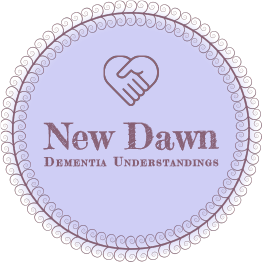WHOSE PROBLEM IS IT ?
With the best of intentions and loving hearts we can sometimes crush feelings of self-worth for a person living with Dementia when we punctuate our conversations with corrections to their narratives and disagree with their timeline. We mean well, thinking that perhaps a reminder of facts and reorientation to the here and now might just be the magic lifeline to bring them back to our present reality. As if loading them up with facts (not to mention proof of those facts) will weigh them down enough to anchor them to the present.
We think we’re helping, but we’re not. When we challenge their reality or timeline what we are actually doing is constantly telling them they are wrong. Few if any of us like being told that we’re wrong. It’s not a good feeling. With or without cognitive impairment, accepting that you’ve “had it wrong all along” may bring about feelings of shame, failure, social withdrawal, and an unwillingness to try again. Or, it may incline the opposite of withdrawal and spark anger and belligerence. These are human feelings and they’re no different for those living with Dementia.
While it is painfully difficult to witness a loved one existing on another timeline in another reality, take a moment to think about where they believe they are in their reality. Chances are that they’re back at a time in their life that was important to them and gave them a sense of challenge, purpose, and fulfillment and security. If they believe your young son and daughter are you and your brother as children, they’re most likely reliving some of the best years of their life. That’s not a bad place to be, really…the best years of your life. So, why do we continue to try and yank them away from that feeling of wellbeing? Is it so important for us to convince them that they’re wrong and we’re right? Ask yourself “whose problem is it?”. Is it causing your loved one with Dementia distress to believe it’s 40 years ago, or is it you who are distressed by the situation? As difficult as it may be to accept a loved one’s alternate reality, by doing so you are allowing them the peace to be where they find themselves, and sparing them the embarrassment and loss of self-esteem that often accompanies being constantly told they are wrong. Dementia may have taken away things that you used to enjoy sharing, but you can join them in their reality and share good company together without the stress of who is right and who is wrong. Please resist the natural urge to correct and ask yourself again, “Whose problem is it?”.
